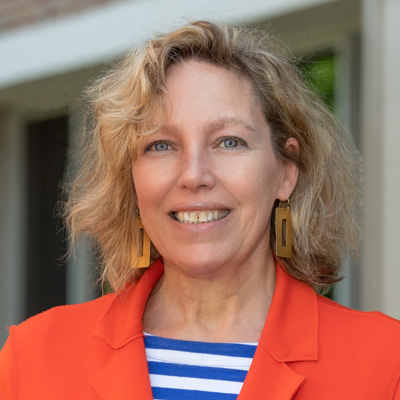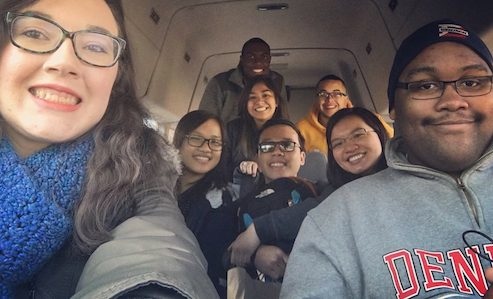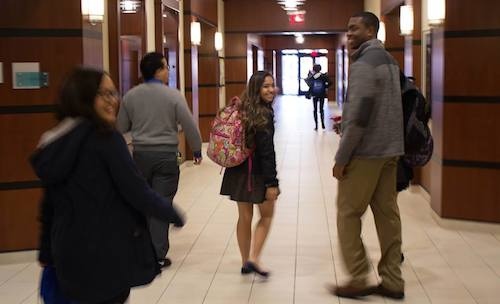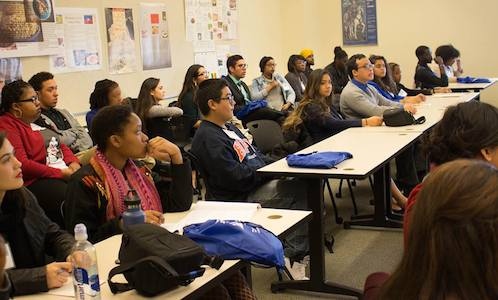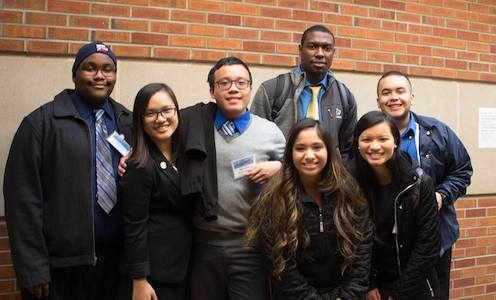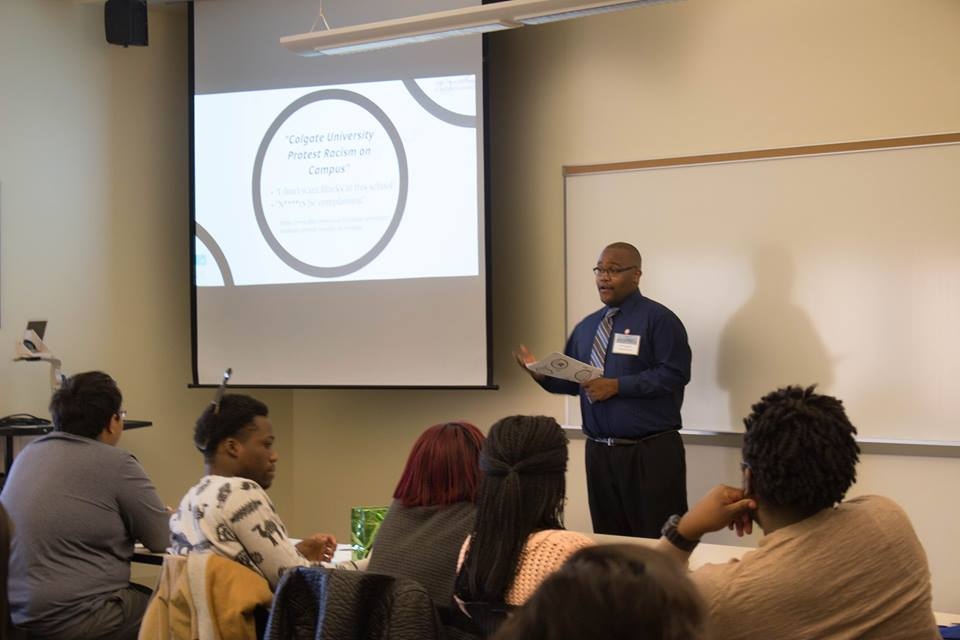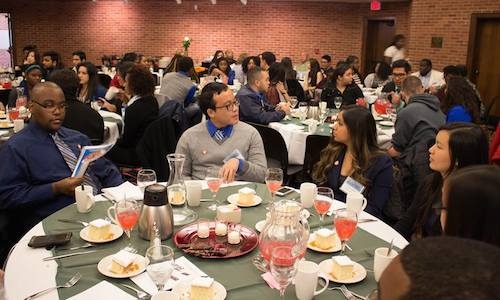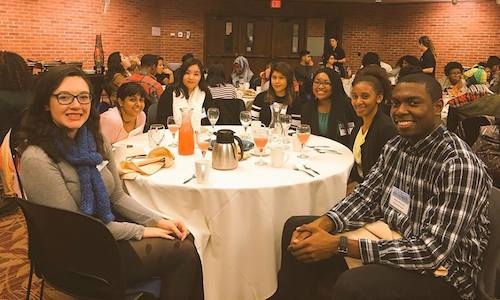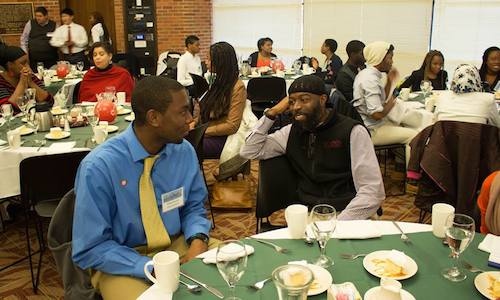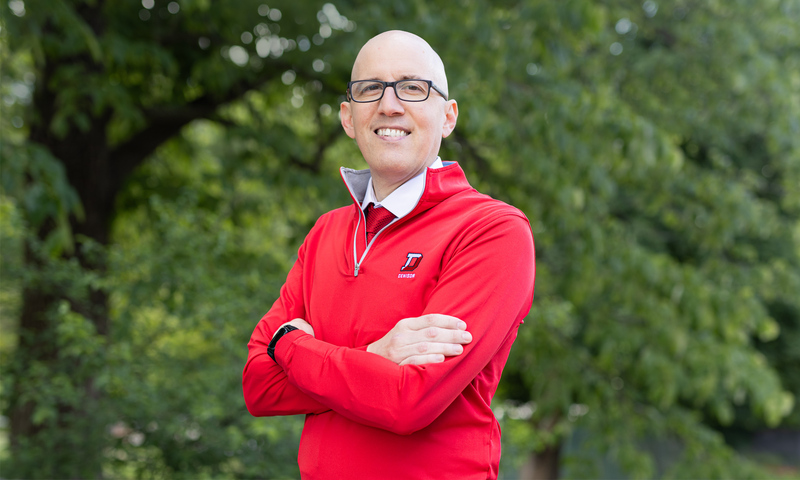Students are intensely aware of social media and cultural pressures on campus. And they have a unique understanding and ability to educate their peers and faculty about these issues and more, which is exactly what they did at the 2015 Great Lakes College Association’s Students of Color Leadership Conference held at Hope College.
The Students of Color Leadership Conference serves as a platform for faculty members and students of color from GLCA schools to discuss campus climate issues, structures of different multicultural affairs, and other concerns. Several Denison students attended and presented at the 2015 conference, which explored the theme “The Politics of Institutional Culture.”
Justin Cancel ’18 and his group presented, “Thumb Thugs: The Effect of Social Media on Campus Climate.” Cancel, a psychology major, feels that social media is a very powerful tool. “We should raise awareness on how to properly use social media to decrease negative affects on campus,” said Cancel, who attended conference to make connections with students of color at other GLCA schools and plans to continue to hold conversations with these peers.
Economics major Wallace Branche ’16 and biology major Vanessa Cerda ’18 presented a discussion about cultural pressures. They defined cultural pressure as a phenomenon “when a group exerts its ideals on the individuals which causes them to conform with the group’s norms.” For Branche, cultural pressure “not only forces one to decide on a certain major because of expected success in the field but also discourages many of us to try opportunities that those before us haven’t attempted.”
Branche and Cerda’s group presented information they gathered after conducting research with students on campus. Their research grouped students of color by graduation year and asked if they felt the need to present or conduct themselves in ways that made it easier to be accepted by the culture or race with which they identify. Interestingly, more students in the class of 2019 felt pressured to conform to certain cultural expectations than students graduating in 2016.
The pressure to join minority clubs on campus — La Fuerza Latina, Black Student Union, Asian American Association — also was a focus of the research. The responses of the students were split 50/50 between feeling pressured to join a club and not feeling pressured.
One student noted, “I do feel pressure. I don’t want the black people on campus to think that I am too good to be involved in BSU, and I don’t want them to think that I’m not really black or something.” In contrast, another student said, “As a liberal arts student, I come to these meetings to open my mind to different perspectives and become a more worldly individual.”
At the end of the cultural pressure discussion, students gave their thoughts on how to enact change at Denison and help alleviate the weight of cultural pressure. One student believes that the campus should “celebrate more of everyone’s culture. A place cannot be diverse without celebrating those diversities.”
At least half of the conference’s sessions and presentations were led and taught by students, who served as the experts in their topics. The conference also led to increased mentoring opportunities between faculty and students.
“The students who attend the conference are very thoughtful people who pay close attention to what is happening on campus,” said Erik Farley ’03, associate dean of students and director, center for cross-cultural engagement. “I am very pleased with the work they did and the way they represented Denison and themselves.”
“Overall, the most important thing that I learned, was that change will happen,” said Cerda. “But it will take time, patience, and effort to make a change in our society. It will take many years of work, but we can reach a more welcoming community; if not for us, then it will be for future generations. But change can and will happen as long as we want it.”
